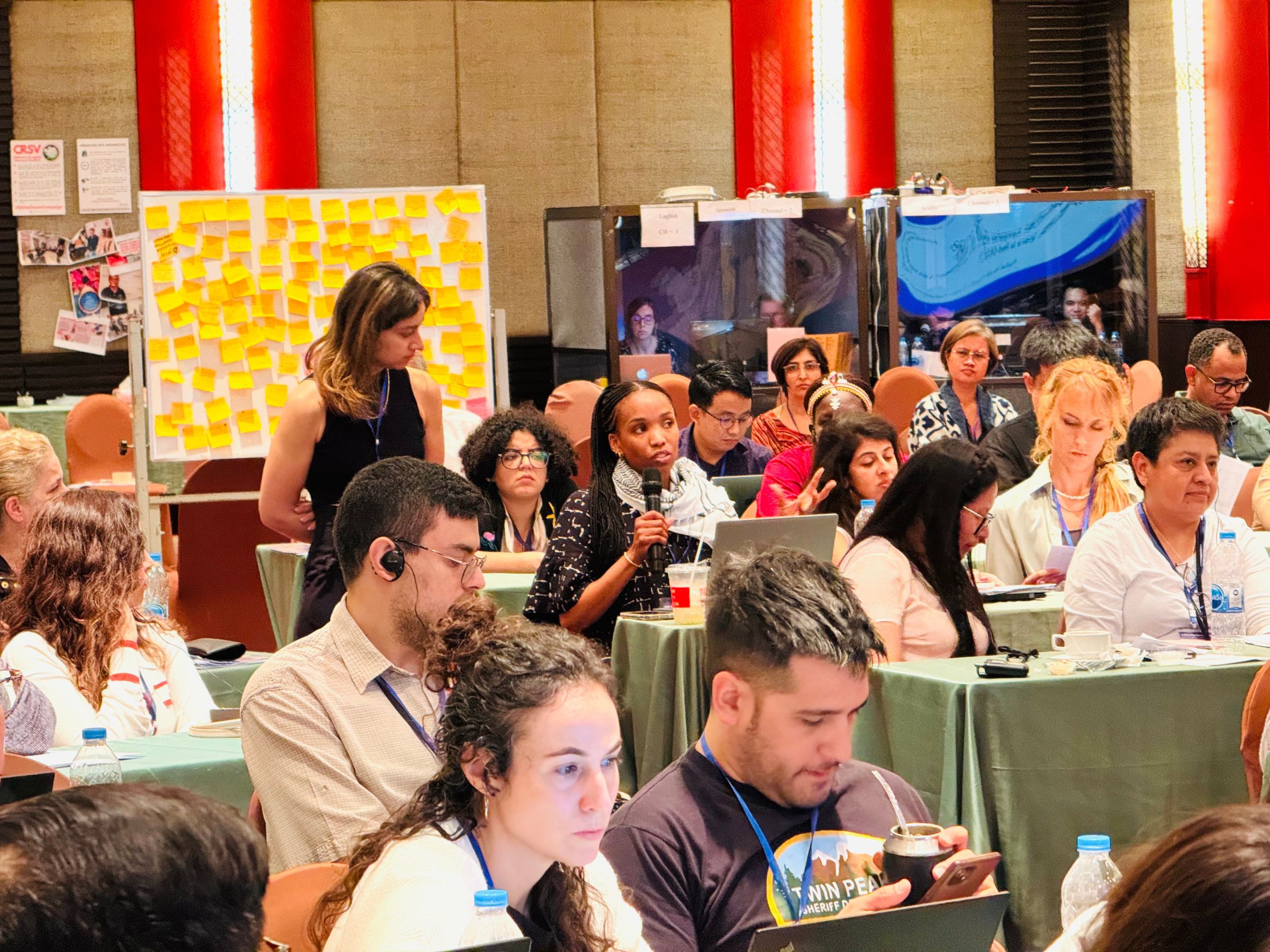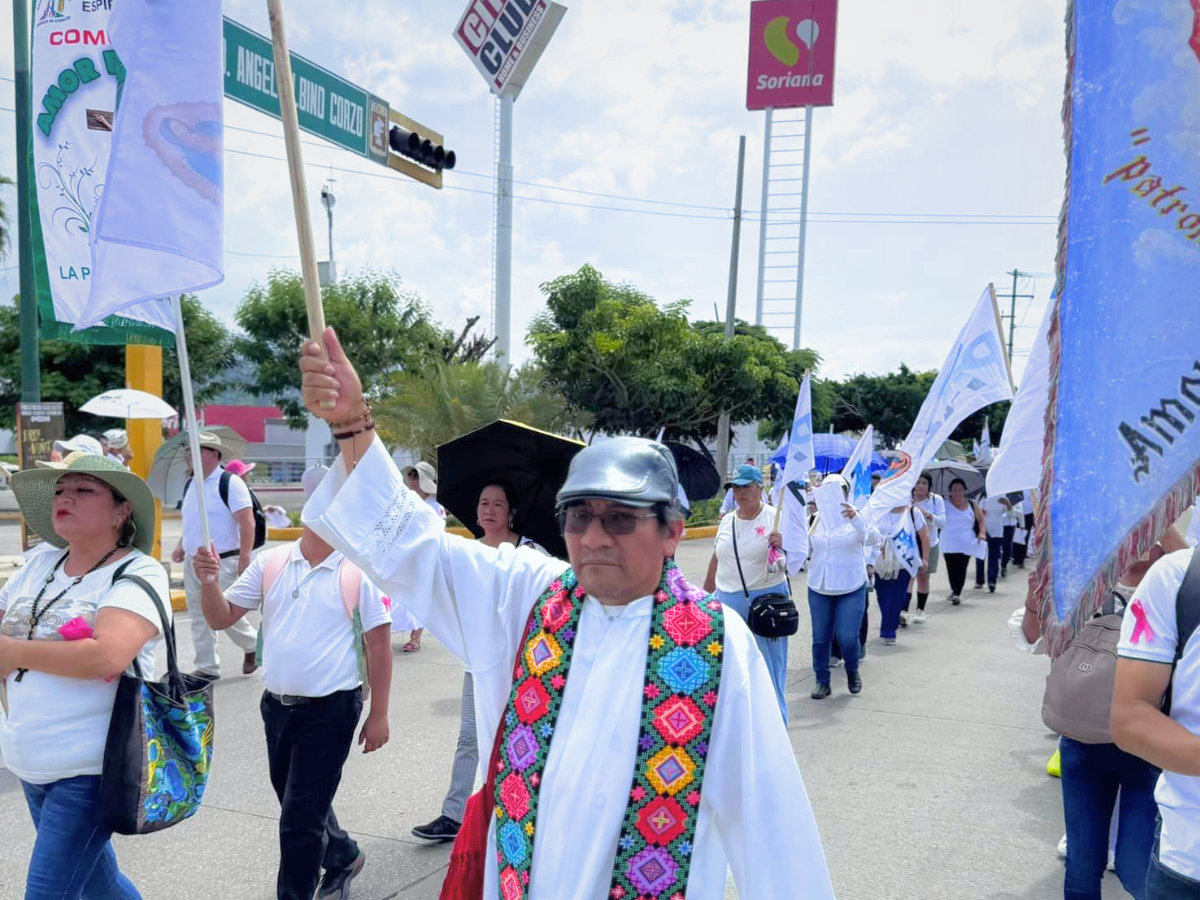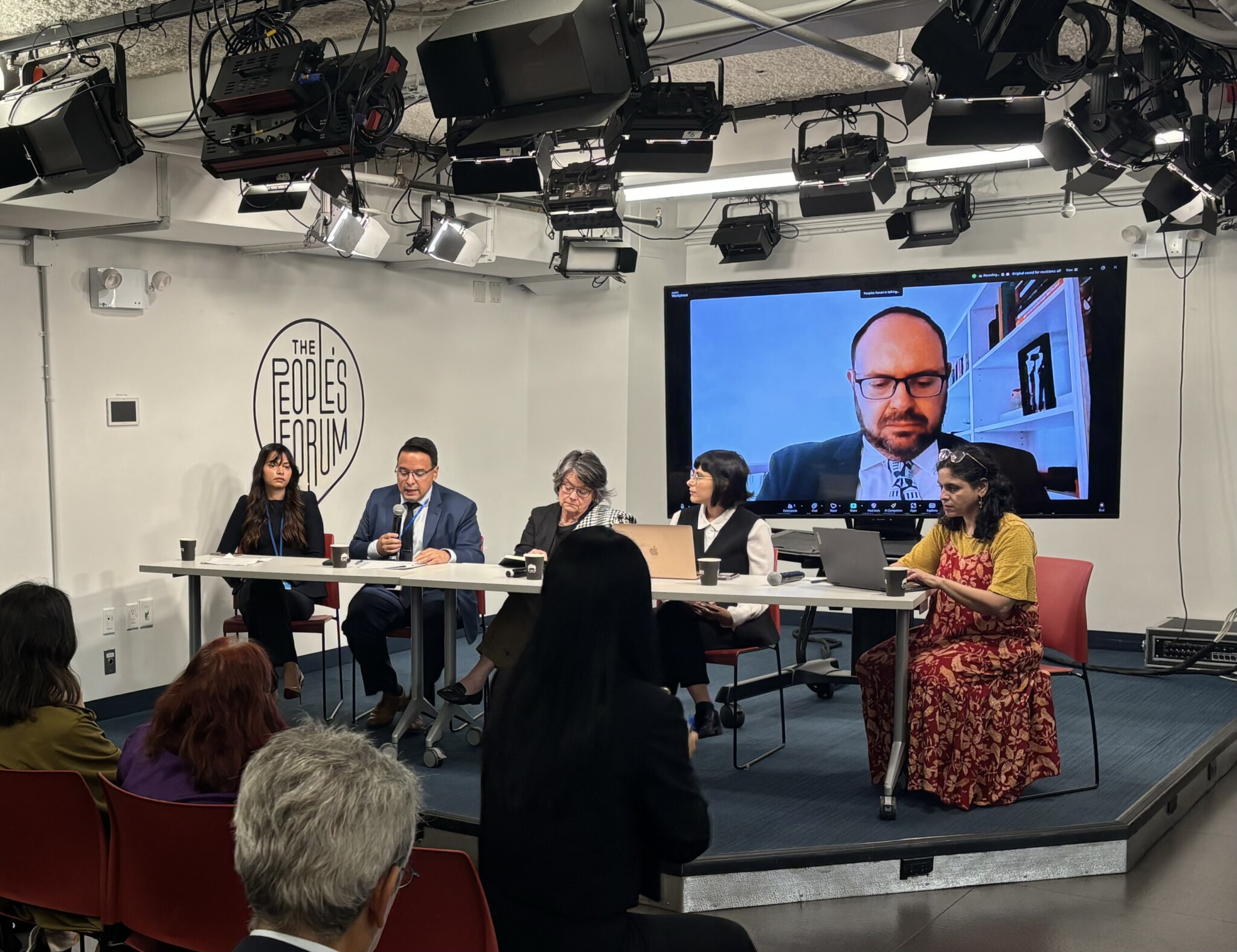On day one of the gathering, a core component of the Network’s mission was front and center: a feminist encuentro, which reinforced the need to integrate feminist and intersectional analysis into all future actions. Activists and defenders from various regions, advocating on issues ranging from domestic workers’ rights to climate justice, corporate accountability, and debt cancellation, praised the Network for embedding intersectional analysis into its work over the years.
“The feminist movement does not work in isolation. It’s very important to have this space at a global level, so we can politically challenge systems of oppression while also imagining feminist futures,” said Misum Woo from APWLD (Thailand,) one of the GSM co-hosts.
The meeting’s official opening ceremony was led by the Asia Indigenous Peoples Pact (AIPP, Thailand), also co-host, setting the tone for days of deep political reflection and strategy-building. Gam Shimray, of AIPP, captured the mood in his opening remarks: “All countries are in a dire situation. When democratic space shrinks, the whole society is affected, including Indigenous Peoples. We cannot fight this battle alone, so that’s why, today, we feel strong. Our strength lies in our shared vision of justice.”
Shaping the future starts with recognizing our shared history of resisting capitalism, colonialism/imperialism, and patriarchy. To facilitate this, the strategic discussions began with a panel focused on the Common Charter for Collective Struggle, the 2016 ESCR-Net core document that movements have updated over the past two years. It offers a sharp analysis of global conditions, from entrenched corporate capture and rising debt crises to climate destruction, dispossession, and attacks and killings of defenders.
“Looking back at the challenges we identified in 2016 and the strategies we developed, there has been some progress,” said Legborsi Saro Pyagbara from the African Indigenous Foundation for Energy and Sustainable Development (AIFES, Nigeria). “But we also see the challenges have grown, particularly with the increasing power of businesses and the violations against communities on the frontlines. We must rethink our strategies and methodologies.”
Panelists from different regions emphasized unity across struggles, underscoring that reclaiming the right to self-determination is central to shaping our futures.











